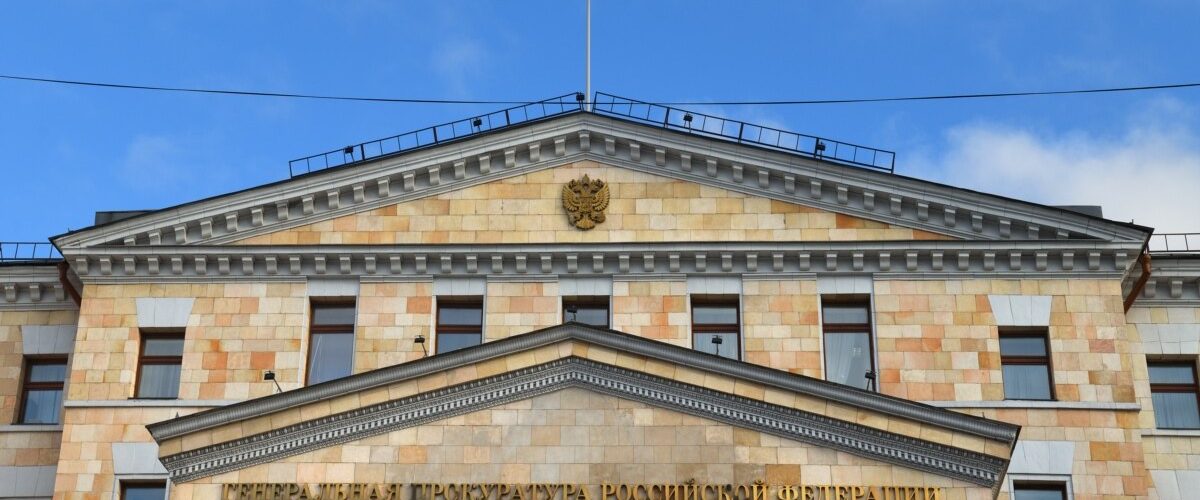Russian President Vladimir Putin made an unannounced nighttime visit to Mariupol, the occupied Ukrainian city that symbolizes Kyiv’s fierce resistance to Moscow’s invasion, in a possible show of defiance after the International Criminal Court (ICC) issued a war for his arrest.
Putin flew by helicopter to the port city, which had been destroyed by Russian bombardments and heavy fighting, for a “working visit,” Russian state media reported on March 19. He visited several sites in Mariupol and spoke with residents, the reports said.
Live Briefing: Russia’s Invasion Of Ukraine
RFE/RL’s Live Briefing gives you all of the latest developments on Russia’s full-scale invasion, Kyiv’s counteroffensives, Western military aid, global reaction, and the plight of civilians. For all of RFE/RL’s coverage of the war, click here.
The trip was the first by Putin to a region of Ukraine occupied by Russian forces after the launch of his full-scale invasion on February 24, 2022. Putin’s trips are almost always highly choreographed by the Kremlin to boost his image at home.
The battle for Mariupol captured international attention as Ukrainian fighters, encircled and holed up in a massive metals plant, heroically defended the city for three months before surrendering in May 2022 as they ran low on food and medicine.
But the battle also highlighted for the world Russia’s brutality as its military launched strikes on civilian infrastructure, killing what is believed to be thousands of Mariupol residents, and triggering accusations of war crimes.
In two of the most infamous cases, Russia shelled a theater used as a bomb shelter, killing as many as 600 people, as well as a maternity ward.
Putin’s visit to the symbolic city sparked anger in Kyiv and in the West.
The Ukrainian Defense Ministry said in a statement that Putin chose to visit at night to hide from Russian TV viewers the destruction he wrought on Mariupol and the ensuing desolation it has caused.
Once a bustling port city with a population of half a million, Mariupol is now home to just about 90,000 people, many of them too old or too ill to leave the ravaged city.
The outskirts of Mariupol are filled with the graves of those killed in the fighting.
“The criminal always return to the crime scene,” Ukrainian presidential aide Mykhaylo Podolyak said in a tweet about Putin’s visit to Mariupol. “The murderer of thousands of Mariupol families came to admire the ruins of the city and [its] graves. Cynicism and lack of remorse.”
Amid the intense Russian bombing and blockage, some Mariupol residents managed to escape to Kyiv-controlled territory. Others went to Russia, many forcibly so, including children.
The alleged deportation of Ukrainian children to Russia is at the center of the ICC’s unprecedented March 17 warrant for the arrest of Putin and Maria Lvova-Belova, a Russian children’s rights official.
“There are reasonable grounds to believe that each suspect bears responsibility for the war crime of unlawful deportation of population and that of unlawful transfer of population from occupied areas of Ukraine to the Russian Federation, in prejudice of Ukrainian children,” the ICC said in a statement on March 17.
The warrant means Putin could be arrested if he enters any of the court’s 123 member states.
The Kremlin dismissed the warrant, arguing that it is void because Russia is not in the ICC’s jurisdiction. Ukraine is also not a member of the ICC.
Putin’s Mariupol visit comes a day after he toured Crimea to mark the ninth anniversary of Russia’s annexation of the peninsula from Ukraine.
Russia’s illegal annexation of Crimea following Kyiv’s overthrow of Moscow-leaning President Viktor Yanukovych in February 2014 was the start of a new phase of Kremlin aggression against Ukraine that would culminate with the full-scale invasion of the country last year.
Ukrainian President Volodymyr Zelenskiy has vowed to regain all territory captured by Russia, including Crimea. Ukraine is preparing a new, major counteroffensive that experts say could begin as early as next month.
In the meantime, Ukraine and Russia have agreed to extend a deal allowing the safe passage of grain exports through Ukraine’s ports on the Black Sea.
WATCH: Standing just behind the front line in Donetsk, the former industrial city of Avdiyivka lies in ruins. As Russian shelling continues, the few remaining residents say they’re not going anywhere.
Following several days of talks, Ukraine announced the deal had been extended for 120 days, while Russia said it had agreed to a 60-day extension.
“The Black Sea Grain Initiative, signed in Istanbul on 22 July 2022, has been extended,” the United Nations said on March 18 in a statement, referring to the initial agreement brokered last summer by the UN and Turkey with Russia and Ukraine.
The UN statement said the deal had allowed the supply of 25 million tons of grain and foodstuffs, helping to bring down global food prices and stabilize markets. The statement also thanked the Turkish government for its diplomatic and operational support of the deal.
Britain’s Defense Ministry said in its daily intelligence bulletin that the temporary switch to an alternative regional capital in the Zaporizhzhya region — one of four illegally annexed by Russia last year — is “likely a tacit acknowledgment” that Russia is failing to meet its objectives in the near future.
On March 3, authorities in the Russian-controlled region issued a decree saying that occupied Melitopol would temporarily replace Zaporizhzhya city as the regional capital until it was controlled by Russia, Britain’s Defense Ministry said in an update on Twitter, adding that Russia has never occupied Zaporizhzhya city, which is approximately 35 kilometers from the current front line.
“The quiet declaration of an alternative capital is likely tacit acknowledgement within the Russian system that its forces are highly unlikely to seize previously planned major objectives in the near future,” the intelligence update said on March 19.


















